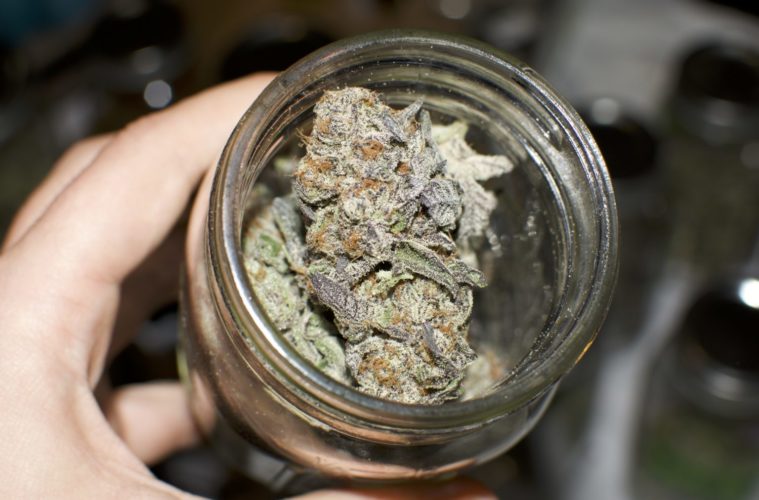As a spread of new cannabis bills continues to crash on Sacramento, the effort to suspend the cultivation tax while increasing the excise tax to make up for lost revenue will surely be the most contentious debate but other plans are on the table too.
AB2506 would suspend the cultivation tax from July 1, 2023 to July 1, 2028, and would discontinue the requirement that the department adjusts the cultivation tax rate for inflation for the 2023 calendar year and during the suspension. While that all sounds dope, there is a catch.
The bill would increase the excise tax over that timeline by an additional percentage. The number would be determined by the Department of Finance based on estimates on how much revenue would be lost with the cultivation tax gone.
The bill was introduced by Assembly Members Tom Lackey and Bill Quirk. Quirk has a number of cannabis bills already filed for 2022, covering everything from medical access to workplace rights, and now taxes.
There are a few schools of thought on this, but generally, everyone agrees that the burden will be moved to another part of the supply chain. Another factor is the hypothetical number the state comes up with.
Would some kind of annual guesstimate determine the excise tax rate for the next five years? And what would the specific metrics be that contributed to that number? In the process of consolidating the tax structure, would there actually be any relief provided to the market?
Some of the experts called foul quickly this morning, as news of the bill got out.
“Rearranging the deck chairs on the Titanic doesn’t seem to make a difference,” United Cannabis Business Association (UCBA) president Jerred Kiloh told L.A. Weekly of the plan.
But what would he say to a small farmer? This was one of their biggest asks of 2021 and it’s easier for the multistate operators dominating the middle and end of the supply chain to cover costs, since their markup is so high. Additionally, those parts of the industry have received a larger infusion of capital over the past decade than the mom and pop farmers of the hills of The Emerald Triangle.
“The cost to the end consumer is the most important thing the state needs to focus on,” Kiloh replied. ”Shifting the tax burden around does nothing to achieve that goal.”
There is plenty of merit to Kiloh’s take. Nevertheless, the people on the hill would read that like UCBA is spitting pro-distributor talking points. What would Kiloh say to those guys to assure them they’re still part of the team? Especially since losing the cultivation tax was a core request for farmers as part of an ensemble of things they believed would keep the industry afloat.
Kiloh assured that he plans on looking out for everyone.
“Tax reduction for all portions of the supply chain is the way to get a ⅔ vote through the legislator,” Kiloh said. “No one is winning in the legal cannabis game, and pointing fingers to other license holders is not recognizing the real problem.”
He said UCBA has no one else’s talking points on our lips and UCBA has the answers to the problems via their own tax bill that will be released Friday.
“Every license holder deserves relief and that needs to be the ask this year,” Kiloh said. “Please don’t bait a fight between license holders throughout the supply chain; we need to come together for the future of Legal California Cannabis.”
AB 2792 is the first and bigger deal of the two. The most important thing to understand before you get into the bill is there are laws defining the average market price in an arm’s length transaction to mean the average retail price determined by the wholesale cost of the cannabis or cannabis products sold or transferred to a cannabis retailer, plus a markup, as determined by the California Department of Tax and Fee Administration on a biannual basis in 6-month intervals.
The bill prevents any markup from being included in the average market price in an arm’s length transaction for purposes of the cannabis excise tax. It also would reduce the rate of the cannabis excise tax imposed on purchasers in a non-arm’s length transaction to 8%.
“Based on the new definition of “average market price” in this bill for an arms length transaction, the markup rate will not be included and it will be a 15% excise tax on the wholesale price. What was 27% based on the .8 markup rate, this new tax will be 45% lower,” Kiloh said.
We asked if AB 2792 would make it impossible to use the excise tax as a mechanism to replace the cultivation tax?
“Usually when bills conflict with each other, the one with the higher vote total will prevail, but the authors of the bills will try to work out these conflicts before the bill goes too far. Mutual respect prevails in this case,” Kiloh explained.
The second UCBA-backed bill would add acting as a cannabis caterer for a private event to the definition of commercial cannabis activity.
All the bills here are part of a volley that landed on Sacramento last week. We’ll cover a few more this week, including interstate commerce.
Advertising disclosure: We may receive compensation for some of the links in our stories. Thank you for supporting LA Weekly and our advertisers.

